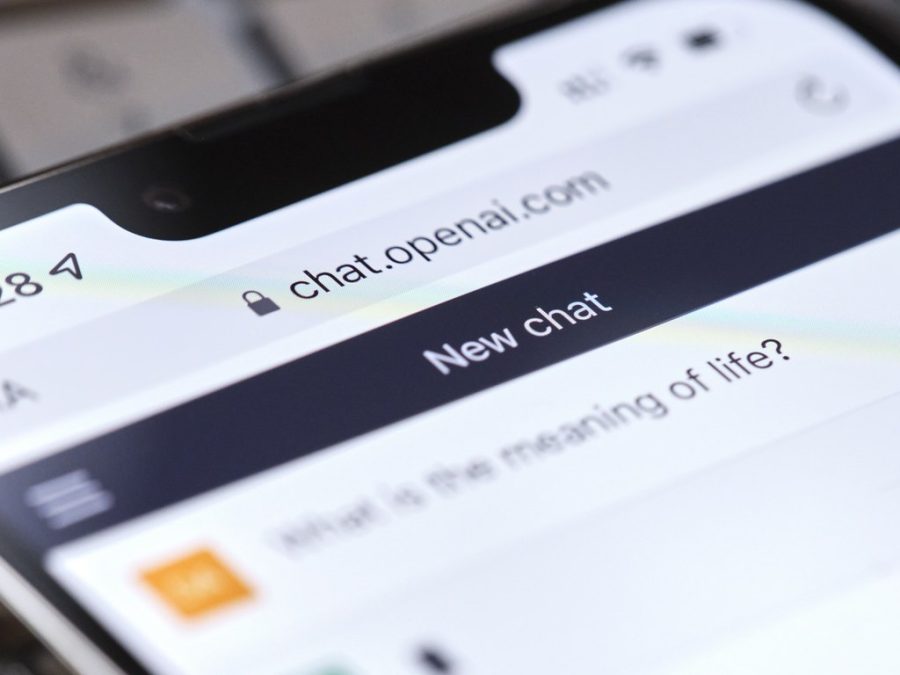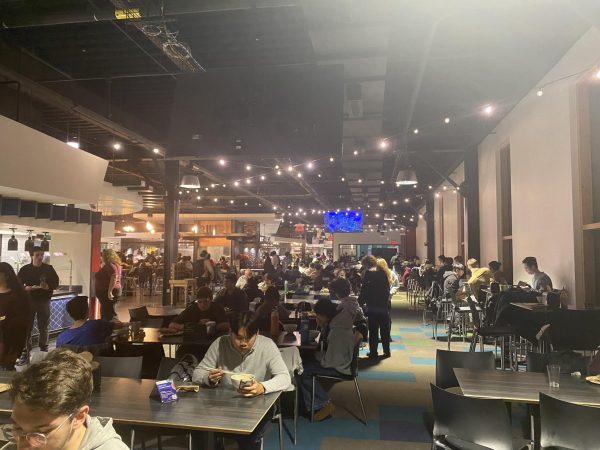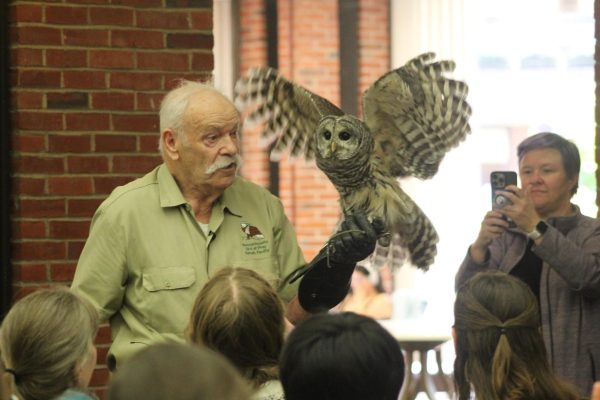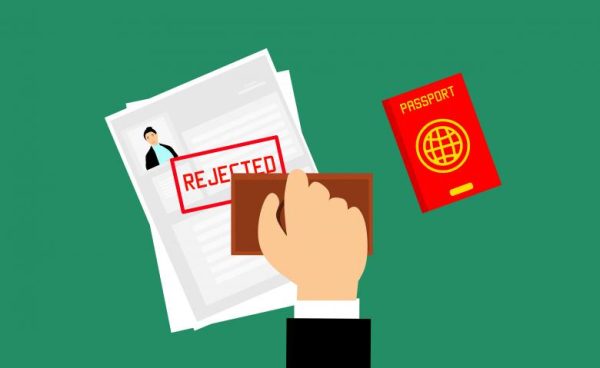ChatGPT in the classroom?
Students and professors reflect on the concerns and benefits of using an AI bot for educational purposes.
In an ever-evolving technological world, UMass, like so many other schools, is in the midst of a debate about where and when it is appropriate to use artificial intelligence technologies like ChatGPT.
ChatGPT, a software chatbot launched by OpenAI, is one of many versions of an online chatbot that allows users to put in a prompt and receive an intricate and intelligent response back. If a student wants confirmation for a theory in their engineering class, an initial draft for an English essay, or even ideas of what to eat for lunch, this can be given to them within a matter of seconds. In a classroom setting, is an AI bot such as ChatGPT a tool for expanding learning or limiting creativity?
Chase Segui, a sophomore physics major, thinks that while the new technology may be useful for certain assignments, it’s not something that students should turn to automatically.
“I think in a case where you just need help with something, or let’s say you’re stuck on one problem… and it’s due at 11:59, maybe it would be acceptable in that case, but otherwise, I don’t think so,” said Segui.
While it can be used for almost anything, the genuine-sounding responses created by ChatGPT are often limited from doing more than spitting out facts. Tanisha Kapoor, an operations and information management major explained that while it provides a good starting point, she hasn’t found that ChatGPT has given her anything that is very usable.
Kapoor has used ChatGPT for one of her classes that involves a lot of writing, but she realized that it is important to be extremely specific with what she is looking for in order to get a response that is not generic.
“For my class stratification of economics… it’s open-ended questions, and there is no right or wrong and that is why the professor said it was okay to use it. So I did, and I found it slightly helpful, but not too specific to what I wanted with the questions,” said Kapoor.
When it comes to promoting or banning ChatGPT from classes, in many cases, it is dependent on the professor teaching the class. Professors also have differing opinions about whether the usage of an AI chatbot would be considered cheating, or if it could be utilized as a tool to think more analytically.
“I think it would bother me,” said Sanjay Arwade, an engineering professor. “If I assigned a problem, and a student were to submit a solution to that problem that had been completely generated by an AI chatbot, I think my instinct is that that would not be reflective of the students’ work, and that therefore would not be within the bounds of what we consider completing an assignment on your own.”
Jenny Adams, an English professor, agreed. She explained that a crucial part of English is writing from students’ own ideas, and it is hard to replicate that with a chatbot. While ChatGPT can hypothetically be used for an English class, it is not sufficient for creative thinking.
“One of the major things we are teaching is writing, and I’ve heard a lot of faculty talking about ‘oh, it’s good for a first draft,’ but in my analogy that’s like asking someone to run the first three laps of a four-lap race for you,” explained Adams. “The problem is, if you just run the last lap you aren’t getting stronger at doing the skill that we are working on, and drafting is part of thinking.”
For Arwade, the question of whether or not a student uses ChatGPT is not dire. While it is a new technology, and something to consider in the classroom, the use of a chatbot for classroom assistance is an open debate.
“I’m not at a point where I’m viewing it as sort of an existential threat to education and academic honesty and things like that, and I think that there will be interesting discussions to be had in academia and in the workplace, and in politics, about what it means to use an AI chatbot to create text for you,” he said.
For professors, it can be essential to assess what information can be gained by a simple Google search or a prompt, and what cannot. When it comes to forming assignments, Yair Zick, a professor in the computer science department, explained that if an assignment is something that can be directly pulled from an AI bot, the assignment might not be very useful
“I think that instructors need to rethink what their goals are, and perhaps this is not a bad thing. I don’t know, I’ve never taught English, or history, or anything like that but I’ve learned it in school and maybe one question would be ‘is it useful to have students summarize stuff as a way of learning?’… maybe if a machine can do it it’s not that effective of a tool,” Zick said.
Adams agrees and tries to give students prompts for assignments that not only incite creative thinking, but also work that students wouldn’t want an online bot to create for them.
“I think we often try to ask for more personal essays… that’s harder for ChatGPT to simulate, and I also think it would be more appealing for a student to claim as their own. You don’t want ChatGPT answering that for you,” she said.
While ChatGPT seems effective on a baseline, there are certainly many debates and questions to be had that will be relevant for a long period of time. However, Arwade believes that these debates are valuable, and there is no reason to jump to negative conclusions. He explains that students and faculty should collaborate and discuss together in order to utilize these new technologies to the best of their abilities.
“I think that we as faculty would love to see students be a part of this conversation about how AI bots should be part of, or outside of our higher education system. We, I think, trust the vast majority of our students to be able to engage with that difficult question in a mature way and in a way that reflects their desire to learn and become better people and members of society,” he said.











